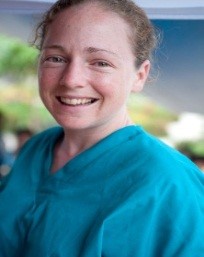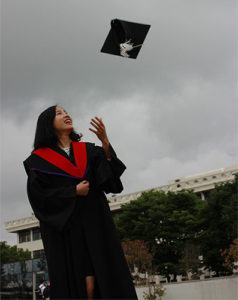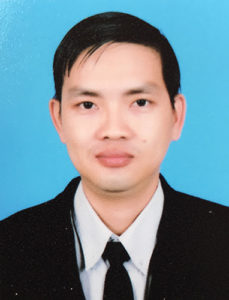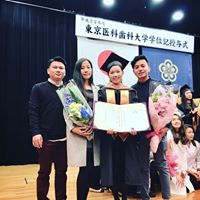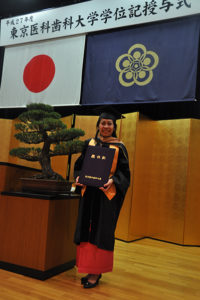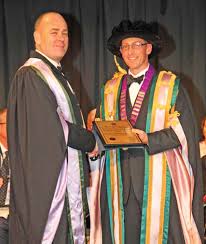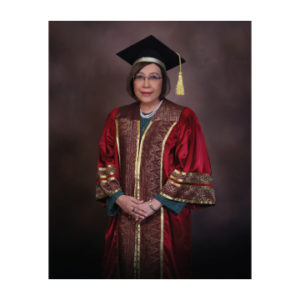Faculty of Health Sciences and Biotechnology
As Cambodia is becoming more technologically advanced and research focused there is an increased need for professionals with a practical and solid scientific background who are able to provide research support in a variety of fields including chemical, pharmaceutical, food industry, cosmetics, environmental biology, agriculture, forensics, bioscience, microbiology, tissue culture sustainability policy, etc. Therefore, Science Research Department of University Puthisastra is playing an active role in supporting the STI roadmap, by aligning its curriculum to the STI Roadmap, whilst also promoting and engaging in STEM research that is supported by the Cambodian government. By including the STI roadmap aims into the curriculum, Cambodian universities can offer exciting and modern degrees that will provide Cambodian graduates with a whole new range of study and employment opportunities in science fields both in Cambodia and internationally, whilst supporting the country to meet their STI Roadmap goals and creating the science and technology leaders of tomorrow.
The UP faculty of Health Sciences and Biotechnology, especially in science research program has a wide range of research interests, focusing primarily on the following areas:
- Biotechnology
- Chemistry (Analytical, organic and inorganic chemistry)
- Food (Food processing, food testing and analysis)
- Environmental (Soil, air and wastewater)
- Microbiology
- Molecular biology
- Infection diseases
- Tissue culture (Plant and animal)
- Agriculture
Publications
1. Be, S., Peung, K., (2024). Overview of Antimicrobial Resistance and Use in Cambodia. STI Focus “Science, Technology and Innovation”, Volume 3, issue 2/2024, pp. 15-19. https://shorturl.at/O0sI9
2. Be, S., Lim, C., Phally, S., Neang, S., & Sok, C., (2024). Exploring Demographic and Behavioral Factors Influencing Knowledge and Participation in Health Check-Ups Among University Students. STI Focus “Science, Technology and Innovation”, Volume 3, issue 2/2024, pp. 20-26. https://shorturl.at/zjsut
3. Peung, K., Be, S., Chhun, S., Heng, S., Say, S., Yem, V., Hem, C., Toem, L. (2024). Assessing the Safety of Drinking Water in Urban Slum VS. Rural Cambodia: Escherichia coli Detection Using H2S Test Kits. The 50th International Congress on Science, Technology and Technology-based Innovation, pp. 41. https://stt50.scisoc.or.th/stt50/downloads/AbstractBook.pdf
4. Leng, S., Men, K., Penh, R., Be, S., Heng, S. (2024). Determination of Extracted DNA From Human Blood Cells Using QIAAMP® DNA Blood Mini Kit. In STT50. The 50th International Congress on Science, Technology and Technology-based Innovation, pp. 41. https://stt50.scisoc.or.th/stt50/downloads/AbstractBook.pdf
5. Chao, C. T. C., Makara, S. P., Soknea, S. L., Chao, S., Ann, R., & Chhun, S. (2024). Determination of formaldehyde in fresh seafood from Cambodia’s local market. Journal of Cambodian Health, 2(1). https://doi.org/10.70243/jch2024.2102
6. Orn, S., Horn, C., Kaosuon, K. S., Be, S., & Chhun, S. (2024). Effect of Temperature and Storage Duration on Vitamin C Content in Pursat Orange Juice (Citrus sinensis (L.) Osbeck). The 50th International Congress on Science, Technology and Technology-based Innovation, pp. 217. https://stt50.scisoc.or.th/stt50/downloads/AbstractBook.pdf
7. Pek, L., Makara, S. P., Soknea, S. L., Phally, P., Chao, C. T. C., Phal, P., & Chhun, S. (2024). Quantification of Sodium Dithionite in Bean Sprouts from Markets Located in Phnom Penh, Cambodia. The 50th International Congress on Science, Technology and Technology-based Innovation, pp. 96. https://stt50.scisoc.or.th/stt50/downloads/AbstractBook.pdf
8. Soknea, S. L., Makara, S. P., Moore, T. J., & Chhun, S. (2024). Microplastic Pollution – A Treat to Human Health: What can Cambodia Do? The 50th International Congress on Science, Technology and Technology-based Innovation, pp. 258. https://stt50.scisoc.or.th/stt50/downloads/AbstractBook.pdf
9. Say, S., Chhea, C., Lo, K., Ung, P., (2024). Level 2 Quality of Care Assessment at Referral Hospitals in Kampong Thom, Kampot, and Kep Provinces. Cambodia Journal of Public Health. Vol. 5 No. 25A (2024) November, 2024. https://cjph.niph.org.kh/index.php/cjph/article/view/390
10. Heng, S., Hak, M., Som, D., Sort. S., (2024). Identification of Alpha-Galactosidase Gene in Tomato Plant. Journal of Cambodian Health, 2(1). https://doi.org/10.70243/jch2024.2103
11. Be, S., Ngory, L., Sean, V., Theam, A., (2023). Removal of Cadmium from River Water and Ground Water by Using Eggshell as Adsorbent. STI Focus “Science, Technology and Innovation”. Volume 2, Issue 2/2023-December 2023, pp. 12-16. https://misti.gov.kh/public/file/202401091704791516.pdf
12. Chhun, S., Meng, S., Makara, S., Chey, T., (2023). Determination of Sodium Dithionite in Ginger, Lemongrass, and Bean Sprout. STI Focus “Science, Technology and Innovation”. Volume 2, Issue 2/2023-December 2023, pp. 22-26. https://misti.gov.kh/public/file/202401091704791516.pdf
13. Be, S., Peung, K., Vimol, O, M., Sim, N., (2023). The Potential of Drinking Water Pollution at Various Stages of People’s Consumption by Using H2S Test. STI Focus “Science, Technology and Innovation”. Volume 2, Issue 1/2023-June 2023, pp. 24-28. https://misti.gov.kh/public/file/202308291693300779.pdf
14. Be, S., Vinitnantharat, S., & Pinisakul, A. (2021). Effect of mangrove biochar residue amended shrimp pond sediment on nitrogen adsorption and leaching. Sustainability, 13(13), 7230.
15. Be, S., and Pinisakul, A. (2021). Enhancing Mangrove Biochar Residue for Phosphate Adsorption by Modified with Fe3+, K, and Na+. 47th International Congress on Science Technology and Technology-based Innovation “Sciences for SDGs: Challenges and Solutions”, pp. 265-272.
16. Chhun, S., Thongkon, N., and Thanasupsin, S.P., 2021, “Method Validation for Determination of Methyltestosterone in Nile Tilapia by Supercritical Fluid with Carbon Dioxide as a Green Extraction Technique for HPLC Analysis”, International E-Conference on Applied Sciences Society and Economic 2021, pp. 59-66
17. Chhun, S., Thongkon, N., and Thanasupsin, S.P., 2021, “Method Validation for Determination of Methyltestosterone in Nile Tilapia by Supercritical Fluid with Carbon Dioxide as a Green Extraction Technique for Hplc Analysis”, Asian Journal of Fundamental and Applied Sciences, Vol. 2, No. 2, pp. 77-84.
18. BE, S., MOORE, T. (2022, October 13–14). Determination of Phosphorus Content of Rice Field Soil Samples in Villages at Kompong Speu Province, Cambodia. [Poster presentation]. Research Conference
19. “Improving Cambodian Health and Wellbeing – ways forward”, University of Puthisastra (UP), Phnom Penh, Cambodia.
20. BE, S., MOORE, T (2022, October 13–14) Achieving Cambodia’s Science, Technology and Innovation Roadmap Goals – How Cambodia’s Universities Can Support These Aims. [Poster presentation]. Research Conference “Improving Cambodian Health and Wellbeing – ways forward”, University of Puthisastra (UP), Phnom Penh, Cambodia.
21. BE, S., MOORE, T. (2022, October 13–14) Investigation of Mercury Content in Skin Whitening Creams in Phnom Penh, Cambodia from 2008 to 2015. [Oral presentation]. Research Conference “Improving Cambodian Health and Wellbeing – ways forward”, University of Puthisastra (UP), Phnom Penh, Cambodia.
22. HEM, C., MOORE, T. (2022, October 13–14) Strengthening Pathology Services in Cambodia. [Poster presentation]. Research Conference “Improving Cambodian Health and Wellbeing – ways forward”, University of Puthisastra (UP), Phnom Penh, Cambodia.
23. CHHUN, S. MOORE, T. (2022, October 13–14) Identifying Phosphoric Acid Levels in Carbonated Drinks Using UV-spectrophotometry. [Poster presentation]. Research Conference “Improving Cambodian Health and Wellbeing – ways forward”, University of Puthisastra (UP), Phnom Penh, Cambodia.
24. CHHUN, S., MOORE, T. (2022, October 13–14) Microplastic Pollution – A Threat to Human Health: What can Cambodia do? [Poster presentation]. Research Conference “Improving Cambodian Health and Wellbeing – ways forward”, University of Puthisastra (UP), Phnom Penh, Cambodia.
25. TOEM, L., MOORE, T. (2022, October 13–14) Laboratory Simulation Room: A Teaching and Learinig Strategy for Real-World Practice. [Poster presentation]. Research Conference “Improving Cambodian Health and Wellbeing – ways forward”, University of Puthisastra (UP), Phnom Penh, Cambodia.
26. YEM V., MOORE, T, (2022, October 13–14) Prevalence and Risk Factors of Intestinal Parasites of Buddhist Monks in Takeo province, Cambodia. [Poster presentation]. Research Conference “Improving Cambodian Health and Wellbeing – ways forward”, University of Puthisastra (UP), Phnom Penh, Cambodia.




